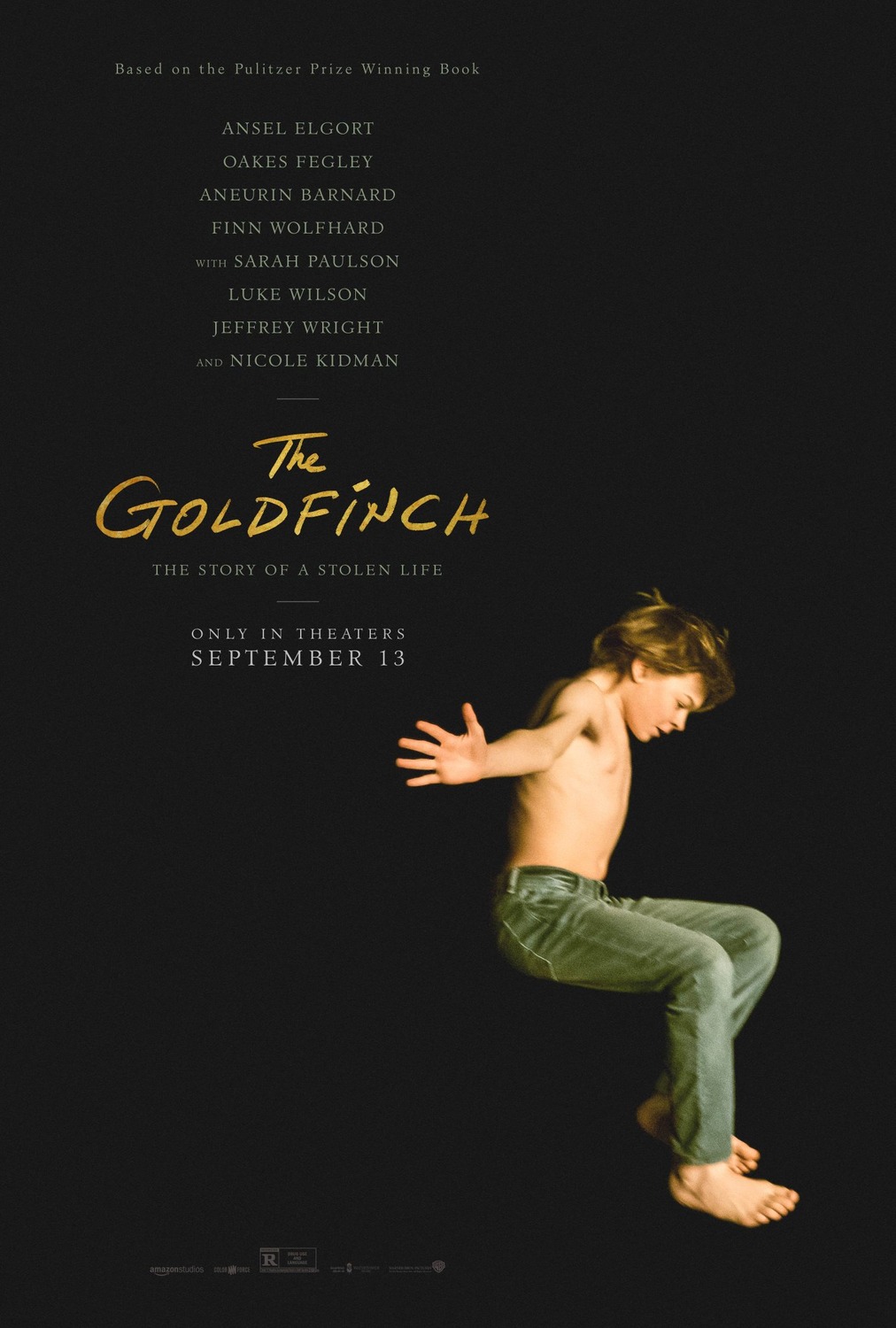After thirteen nominations for the Best Cinematography, the legendary Roger Deakins finally won his first Oscar for 2017’s Blade Runner 2049. His first film since that win is Brooklyn-helmer John Crowley’s adaptation of Donna Tartt’s Pulitzer Prize-winning novel The Goldfinch.
And for those folks who have wondered what difference a cinematographer makes in the grand scheme of things, look no further than this film, which at times is boring, sometimes odd, and, sure, occasionally satisfying… but never not beautiful. Deakins has a rare gift (shared only with the great Emmanuel Lubezki, who has won three Oscars of his own) to take even the most mundane item or moment and turn it into something stunning.
How, then, does a film with all the potential in the world wind up a marked disappointment? (Along with Deakins’ and Crowley’s involvement and the well-respected source material, we get the sublime Nicole Kidman and Jeffrey Wright in the cast.) The two most obvious culprits are the below-average abilities of Ansel Elgort in the lead role and the confounding screenwriting of Peter Straughan.
Elgort stars as Theo (played as a youngster by the noteworthy Oakes Fegley), a young man who is grappling with the death of his mother, the victim of a bombing at the Metropolitan Museum of Art. Theo was with his mother at the time, and he blames himself for her death. Immediately after the incident, Theo walks out of the museum with the titular 17th century masterpiece painting, seeing it as a talisman of sorts—something he can protect, since he couldn’t protect his mother.
While still a young man, Theo is taken in by the upper-class family of one of his fellow middle school students. Enter Kidman as Mrs. Barbour, the student’s mother, who almost adopts Theo before the kid’s deadbeat father (Luke Wilson) comes and whisks him away to Las Vegas.
While in Vegas, Theo befriends Boris (Finn Wolfhard), the son of a Ukrainian emigre, who introduces Theo to drugs and alcohol. Eventually Theo makes his way back to New York, where he reunites with Mrs. Barbour and also Hobie (Wright), an antiques dealer who Theo first met soon after the bombing.
In fairness to Tartt, the plot involves so much more and could take pages to summarize, so that will have to suffice. In unfairness to Tartt, however, Straughan takes what was a fairly straightforward (though admittedly complex and multi-layered) book and turns it into a labyrinth of fast-forwards, flashbacks, and esoteric scenes that would confuse even the most devout scholars of the novel. And that’s all before concluding the film with one of the most anticlimactic fizzles in recent memory.
Elgort, for his part, spends most of the film trying (and failing) to convince us that he isn’t in way over his head. Combine that with his ever-present (and supremely grating) perma-smirk, and it’s impossible to avoid spending the vast majority of the film thinking of numerous actors who would have been better in the role. (Timothée Chalamet, Lucas Hedges, and Nicholas Hoult come to mind with very little effort.)
It’s very easy to label The Goldfinch a disappointment, particularly with all that it had going for it, but given the rate at which films get remade, rebooted, and spat back out these days, one can only imagine (and hope) that it’s but a matter of time before the novel gets its due, hopefully without anyone feeling the need to cram an 800-page book into two and a half hours, while still making the finished product feel like a misguided, slow slog… beautiful though it may be.
Rating
2/5 stars
